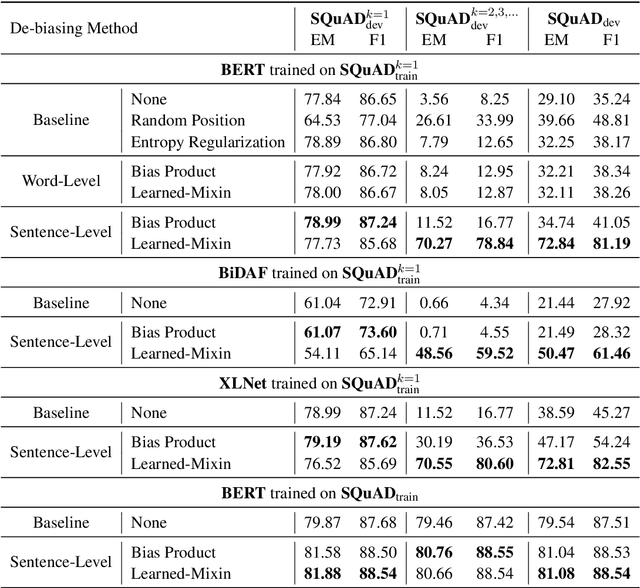Look at the First Sentence: Position Bias in Question Answering
Paper and Code
Apr 30, 2020



Many extractive question answering models are trained to predict start and end positions of answers. The choice of predicting answers as positions is mainly due to its simplicity and effectiveness. In this study, we hypothesize that when the distribution of the answer positions is highly skewed in the training set (e.g., answers lie only in the k-th sentence of each passage), QA models predicting answers as positions learn spurious positional cues and fail to give answers in different positions. We first illustrate this position bias in popular extractive QA models such as BiDAF and BERT and thoroughly examine how position bias propagates through each layer of BERT. To safely deliver position information without position bias, we train models with various de-biasing methods including entropy regularization and bias ensembling. Among them, we found that using the prior distribution of answer positions as a bias model is very effective at reducing position bias recovering the performance of BERT from 35.24% to 81.17% when trained on a biased SQuAD dataset.
 Add to Chrome
Add to Chrome Add to Firefox
Add to Firefox Add to Edge
Add to Edge